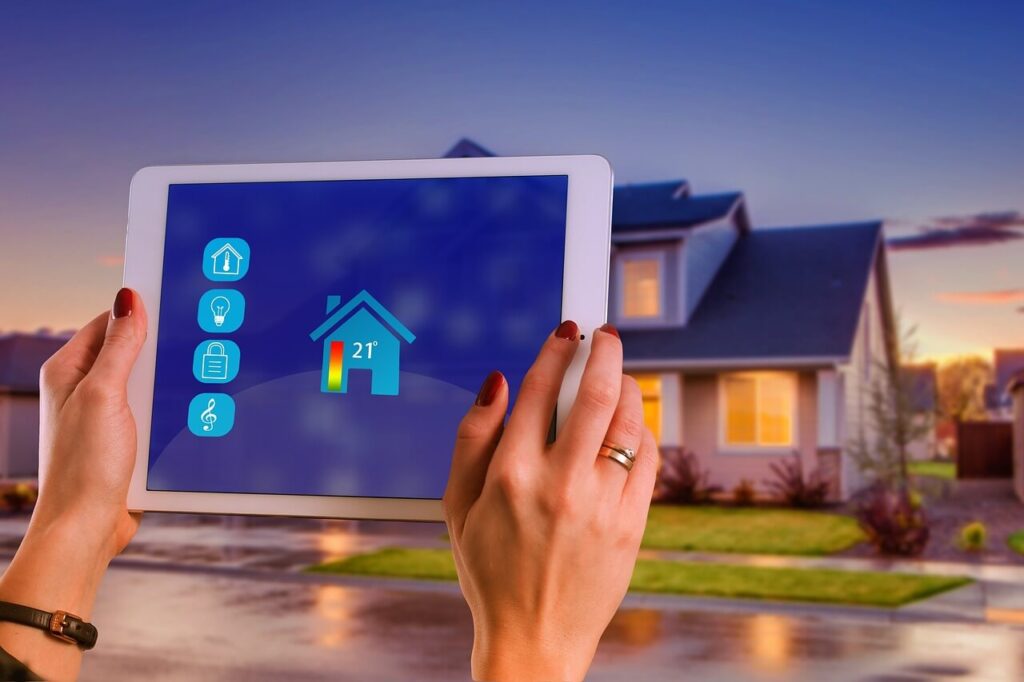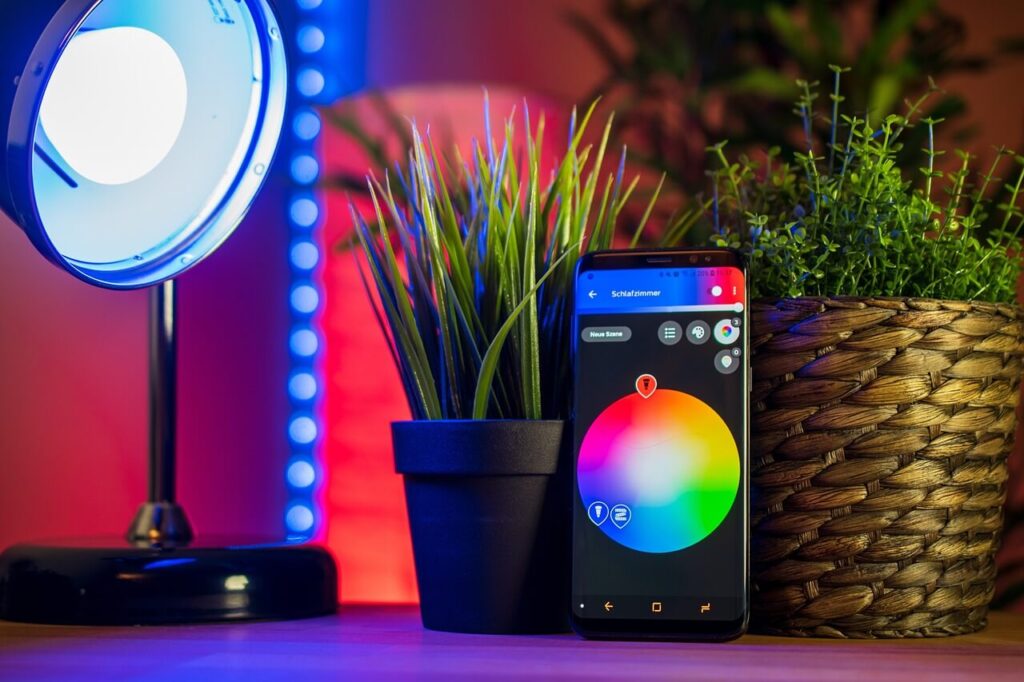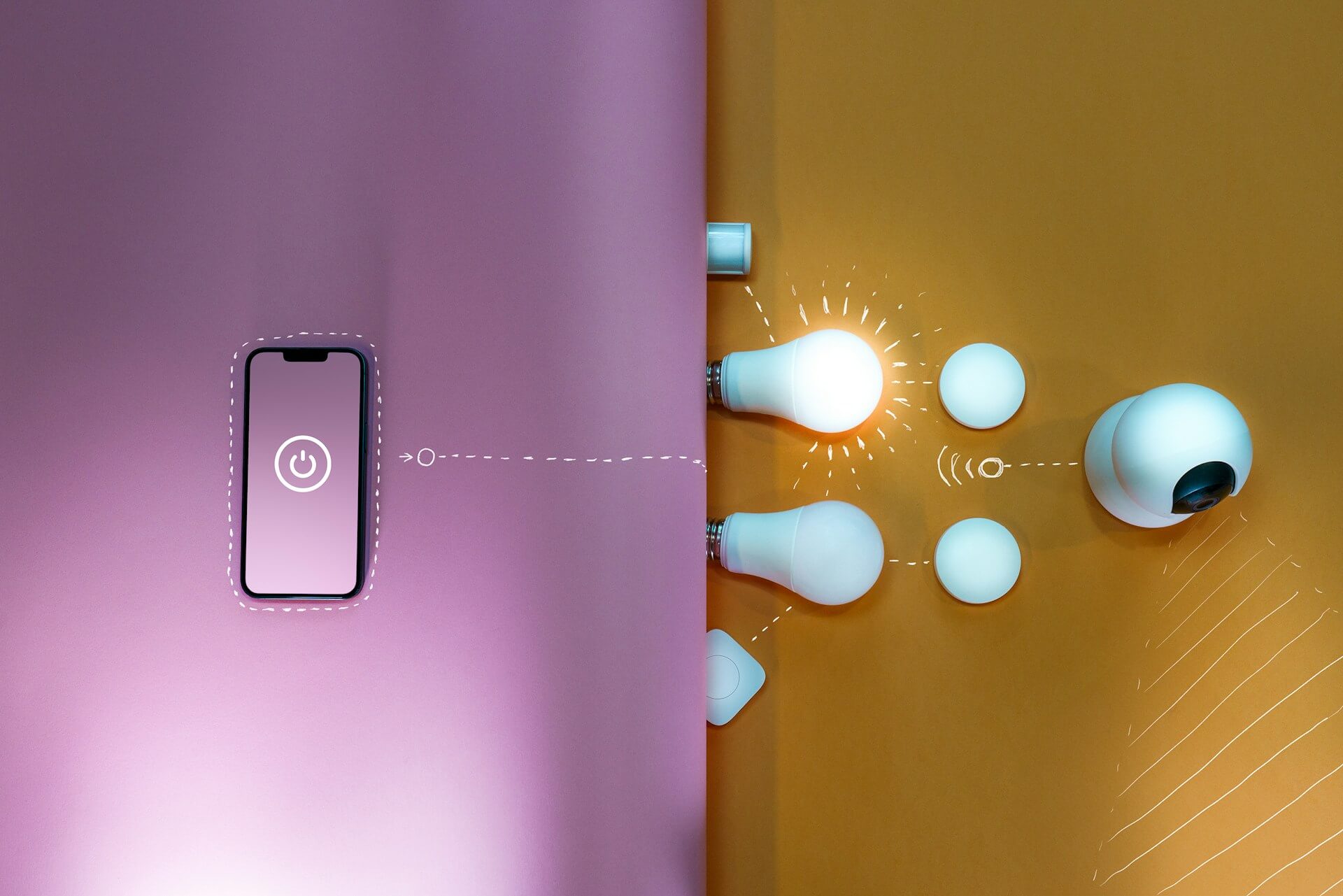Smart home devices have surged in popularity, with smart lights leading the way. These innovative lighting solutions offer more than just illumination—they promise convenience, efficiency, and customization. But what exactly are smart lights, and why are they becoming a staple in modern homes? This article will explore the allure of smart lighting and help you decide if they are a worthwhile investment.
What are Smart Lights?
Smart lights are internet-enabled lighting systems that can be controlled remotely via smartphone apps or voice commands through virtual assistants like Alexa or Google Assistant. Beyond simple on/off controls, these lights offer a range of functionalities such as color changes, brightness adjustments, and scheduling options. The versatility and ease of integration make smart lights an attractive option for tech enthusiasts and eco-conscious consumers alike.
Benefits of Smart Lights
Convenience and Control
One of the primary advantages of smart lighting is the ability to manage your lights from anywhere. Whether you’re at home or on vacation, you can control your lighting settings through an app on your smartphone. Automation features allow you to schedule when lights turn on or off, which can enhance security and energy savings. Voice command compatibility adds another layer of convenience, enabling hands-free operation.
Energy Efficiency
Smart lights, mostly LED-based, use significantly less energy compared to traditional incandescent bulbs. With energy-saving modes and settings that help optimize usage, these lights contribute to lower electricity bills. The ability to set timers ensures lights are only used when necessary, further increasing their efficiency.
Ambiance and Customization
Smart lights offer endless possibilities for customization. You can tailor the ambiance of any room by adjusting the color and brightness to suit any mood or occasion. Pre-set modes allow you to transition seamlessly from a bright morning setting to a cozy evening glow. Whether you’re hosting a dinner party or settling in for a movie night, smart lights can enhance the atmosphere.

Considerations Before Buying Smart Lights
Initial Costs
While smart lights offer numerous benefits, they come with a higher price tag compared to traditional lighting solutions. The cost of smart bulbs can range from $8 to $20 each, depending on the brand and features. However, considering their long-term energy savings and extended lifespan, many users find them a cost-effective investment.
Compatibility and Integration
When choosing smart lights, it’s crucial to ensure compatibility with your existing smart home system. Different brands may have varying levels of integration, so researching and selecting ones that work seamlessly with your current setup is essential. Check for compatibility with virtual assistants or other smart devices you use.
Security Concerns
Like any connected device, smart lights come with potential cybersecurity risks. Protecting your smart lighting system involves using strong, unique passwords and keeping firmware updated. Choose reputable brands with robust security practices to minimize risks.
Smart Lights vs. Traditional Lights
Cost-Benefit Analysis
While the initial cost of smart lights is higher, their energy efficiency and longevity often lead to savings in the long run. Traditional bulbs require more frequent replacements and consume more power, which can add up over time. For those willing to invest upfront, smart lights provide long-term financial benefits.
User Experience and Feedback
Smart light users often praise their versatility and convenience, with many highlighting the ease of controlling lights remotely as a significant advantage. Common complaints center around connectivity issues or compatibility challenges, usually resolved by thorough research before purchase.

Latest Innovations in Smart Lighting
New Features and Technologies
Recent advancements in smart lighting include adaptive lighting, which automatically adjusts color temperatures throughout the day to support natural circadian rhythms. Some smart lights are now equipped with health-centric features, such as air quality monitoring or UV sterilization. The future of smart lighting looks promising, with ongoing innovations aimed at enhancing user experience and sustainability.
Conclusion
Recap of Pros and Cons
Smart lights offer a range of benefits, including convenience, energy efficiency, and customization. However, they come with considerations such as higher initial costs and compatibility requirements. By weighing these factors, homeowners and tech enthusiasts can determine if smart lights are the right choice for their situation.
Pros of Smart Lights:
1. Energy Efficiency: Smart lights often use LED technology, which consumes less electricity compared to traditional incandescent bulbs. They can be programmed to turn off when not in use, further reducing energy consumption.
2. Convenience: With smart lights, users can control their lighting remotely using smartphones, tablets, or voice assistants like Amazon’s Alexa or Google Assistant. This allows for ease of use, particularly in large homes.
3. Customization: One of the standout features of smart lighting is the ability to customize lighting settings. Users can adjust brightness, change colors, and set schedules or scenes to match their mood or activity.
4. Integration with Smart Home Systems: Smart lights can be integrated with other smart devices, such as security cameras and thermostats, enhancing overall home automation and security.
5. Long Lifespan: LED smart bulbs have a longer lifespan compared to traditional bulbs, reducing the frequency of replacements.
Cons of Smart Lights:
1. Cost: The initial cost of purchasing smart lighting systems is higher compared to traditional lighting. This includes the cost of bulbs and possibly a hub for controlling them.
2. Complexity: Setting up smart lights can be complicated for some users, especially those who are not tech-savvy. Moreover, integrating them with existing smart home systems might require additional technical knowledge.
3. Privacy Concerns: As smart lights connect to the internet, there is a potential risk of hacking, which could compromise users’ privacy.
4. Dependence on Internet Connectivity: Smart lights rely on a stable internet connection to function properly. Any disruption in connectivity can cause them to malfunction.
5. Compatibility Issues: Not all smart lights are compatible with all smart home platforms. Users must ensure that their lights are compatible with their existing home automation systems.
FAQs Section
1. Can I use smart lights if I don’t have a smart home system?
Yes, many smart lights can be used independently through their own apps, though their functionality may be enhanced when integrated with a complete smart home system.
2. Are smart lights energy efficient?
Yes, smart lights are generally more energy-efficient than traditional incandescent bulbs due to their LED technology and energy-saving features.
3. How do I ensure my smart lights are secure?
Use strong passwords, keep your device firmware updated, and purchase from reputable brands known for their security measures.
4. What are some common brands for smart lights?
Popular brands include Philips Hue, Wyze, and Kasa. Each offers a variety of features, so it’s important to choose one that fits your specific needs and setup.
Smart lighting is not just a trend; it’s a step towards a more connected and efficient lifestyle. When chosen thoughtfully, smart lights can transform how you interact with your home environment.

Unlock the full potential of your smart home device. Learn how to connect, automate, and optimize your smart devices for a seamless and convenient lifestyle.

